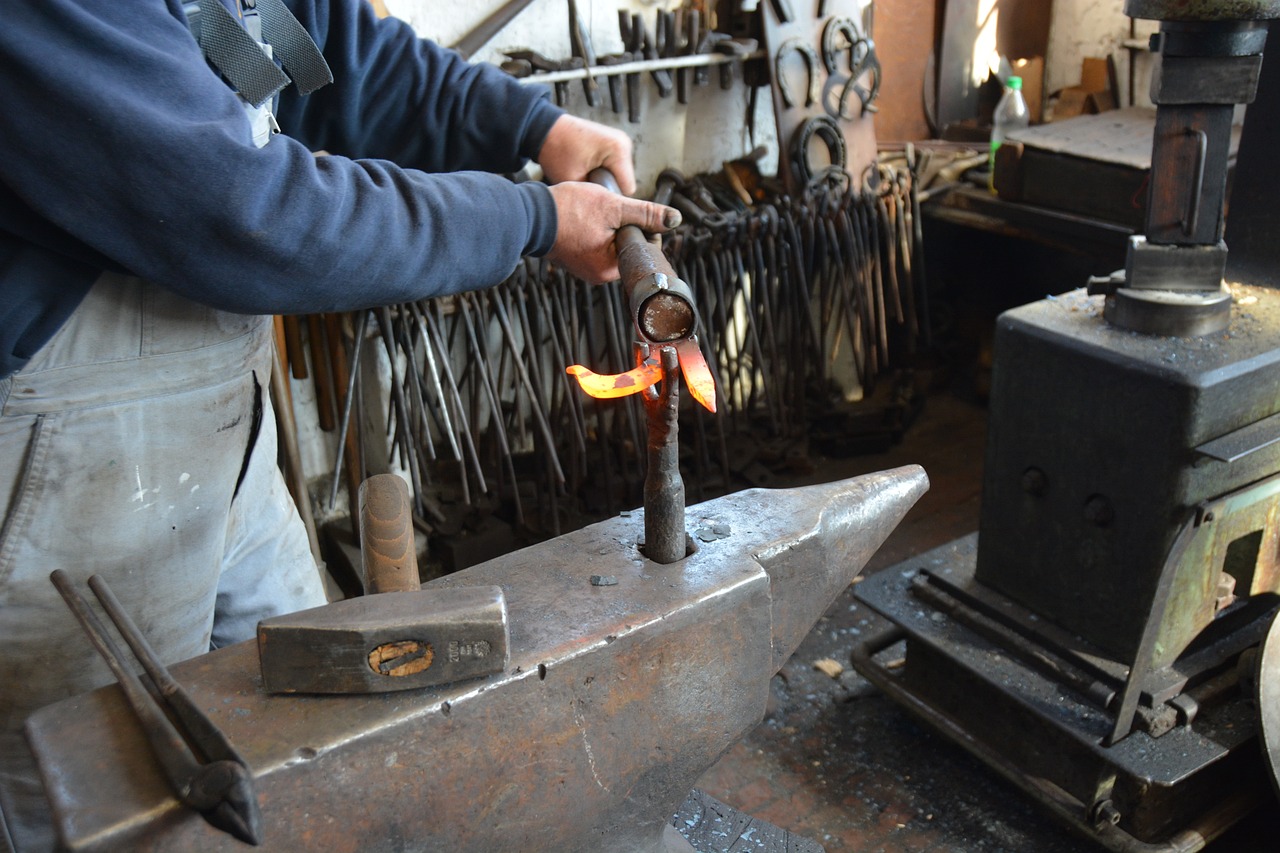Mastering the Forge: The Best Courses for Aspiring Blacksmiths

Embarking on a journey to become a blacksmith is an exciting endeavor filled with the potential for artistic expression and practical craftsmanship. While hands-on experience and apprenticeships have been invaluable since blacksmiths in the 1800’s, formal training can provide aspiring blacksmiths with a solid foundation of knowledge and skills. Here are some of the best courses available for those looking to learn the art of blacksmithing.
Introduction to Blacksmithing
 For beginners or those with no prior experience in blacksmithing, an introductory course is an excellent starting point. These courses cover the basics, including safety practices, tool usage, forging techniques, and an overview of different types of blacksmithing. They set the stage for further exploration into the craft and give you a firm understanding of the fundamentals.
For beginners or those with no prior experience in blacksmithing, an introductory course is an excellent starting point. These courses cover the basics, including safety practices, tool usage, forging techniques, and an overview of different types of blacksmithing. They set the stage for further exploration into the craft and give you a firm understanding of the fundamentals.
Bladesmithing
If you’ve been fascinated by the process of creating knives, swords, or other bladed weapons, a bladesmithing course is the perfect fit for you. These specialized courses focus on the intricacies of shaping and heat-treating steel to create functional and visually stunning blades. Students will learn techniques such as forging, grinding, and finishing, as well as the science behind various types of steel and their properties.
Artistic Blacksmithing
For those interested in the creative aspects of blacksmithing, pursuing a course in artistic blacksmithing can help refine your skills and ignite your imagination. These courses delve into the design process, metal manipulation techniques, and the creation of decorative and sculptural pieces. Students learn about forming complex shapes, incorporating various textures, and adding unique embellishments to their work.
Architectural Ironwork
Architectural blacksmithing courses focus on the construction of intricate metalwork used in buildings, such as railings, gates, and ornamental features. These courses teach students how to interpret designs, select appropriate materials, and execute large-scale projects. Students will learn about historical styles, traditional joinery methods, and the installation of finished pieces.
Advanced Techniques and Specializations
Once you have a solid foundation in blacksmithing, you may explore advanced techniques and specialized areas of the craft. Courses covering topics such as repoussé (metal forming through hammering and shaping), toolmaking, or specific metalworking techniques like chasing and embossing can help you expand your skill set and push your creativity even further.

Business and Marketing for Blacksmiths
While technical skills are essential, aspiring blacksmiths must also understand the business side of the trade. Courses focused on business and marketing for blacksmiths can provide valuable insights into pricing, client management, marketing strategies, and setting up a successful workshop. These courses empower future blacksmiths to turn their passion into a sustainable profession.
Conclusion
Formal training in blacksmithing can provide aspiring artisans with a solid foundation, enhance their skill sets, and accelerate their journey toward becoming professional blacksmiths. Whether you’re interested in traditional blacksmithing, bladesmithing, artistic endeavors, or architectural ironwork, there is a course available to suit your aspirations.
…

 Make a list and explain how these things help you with homework: it’s one of your favorite things to do when you have a break from reading. By making a list, you can quickly identify what needs to be done and whatnot. When making your list, make sure that you prioritize the tasks that need more attention and what is due. This will help you finish the tasks right away and avoid jumping to other tasks.
Make a list and explain how these things help you with homework: it’s one of your favorite things to do when you have a break from reading. By making a list, you can quickly identify what needs to be done and whatnot. When making your list, make sure that you prioritize the tasks that need more attention and what is due. This will help you finish the tasks right away and avoid jumping to other tasks.

